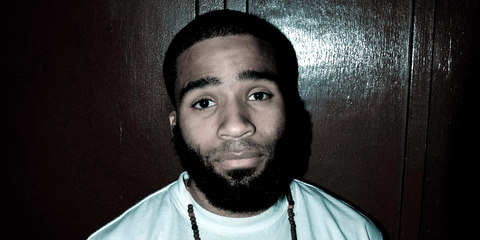
by Jake Espinoza
Every city has their favorite local artists. These are the artists the people of the city select to represent them on a national scale. The community selects an artist by showing support: buying albums, going to shows, sharing music, etc. For the most part, when a community rallies behind a local artist they are rallying behind the person as much as they are the art.
Today’s residents of Northeast Portland have not selected Luck-One as their representative.
Both Luck-One and Northeast Portland changed a lot while Luck-One was in jail from 2002-2007. At the time he was down a destructive path, committing armed robberies, selling drugs, and selling guns. He ended up getting arrested after a failed attempt to rob a local drug dealer.
During that same time period, Northeast Portland was populated in majority by Portland’s minorities—it had been for the previous fifty years as well.
It was against Oregon’s state Constitution for a black person to become a resident until 1926. Black people first moved to Portland to work in the shipyards during World War II, but state real estate practices restricted the new residents to a small section of the city known as Vanport. The area was far too small for the 40,000 new residents, housing projects were built with paper thin walls, and noise was constant with large numbers of people working days and nights.
After the war, the shipyard jobs ended and many blacks stayed despite requests by civic leaders for them to leave. In 1948, the Columbia River flooded leaving 18,000 people homeless. The majority of the new homeless were Vanport residents, and 25% of them were black. The fortunate were relocated to Northeast Portland.
Today Northeast Portland has a much lighter Complexion. Recent changes have raised the cost of living in the area, and forced minorities to move elsewhere (also known as Gresham). Many minorities who stayed in the area are frequently solicited by local businesses and residents interested in assisting them in selling their homes. It may seem fairly obvious that the person offering to help you pack up and move away to Gresham isn’t going to show up to hear you rap at your release party.
“They (the city of Portland) have all this grant money for new bike lanes and all these projects, but they want to shut down Jeff (Jefferson High School).”
In the early 2000’s, Portland had a strong momentum behind urban artists such as Cool Nutz and his label mates on Jus’ Family Records. As the city has changed the momentum behind the movement has been slowed.
“When Common came out with his song The Corner that was my joint. That’s what we do. We’re aren’t out there selling drugs or rolling dice. We’re just out there kicking it, enjoying each other’s company,” he said. “When you have cops coming out to places we are kicking it and beating people up and shooting people it sends a clear message. They don’t want us there. I’m not saying everyone should want to hang out on the corner with us, but it’s not like we just moved there.”
At this point, it seems like Northeast Portland doesn’t want someone like Luck-One representing the community; a lot of people living in the area don’t even want him as part of the community.
Today, Luck-One is a devout Muslim. He’s a sometimes charming, sometimes harsh, and always outspoken individual who is able to get along with just about anyone he would like to. People who know both versions of Luck-One have a hard time believing he is the same person. People who only know the new version have a hard time believing he was ever different.
As a rapper he is phenomenal. In a world where Canibus is the world’s biggest rap star, Luck-One would be in people’s top ten list. He doesn’t make music glorifying, or even discussing, his younger days. His music is about the world and people around him. He deals with topics such as the tension in Palestine, religion, the negative impacts of gentrification and the causes of economic hardship.
“I had so many big ideas on True Theories (his previous release), and when it came out it just seemed like nobody cared.”
This is a familiar feeling for hip-hop artists in the area, and it has left many artists wondering if it is possible for an urban art form to flourish in a city where only 7% of the population is black.
Luck-One doesn’t make any attempt to cater his style to any particular audience. He makes songs for his people, and has no plans of changing.
This Tuesday he is releasing a mixtape titled, “King of the Northwest.”
We’ll be posting the link so stay tuned.
#OuHerePDX

